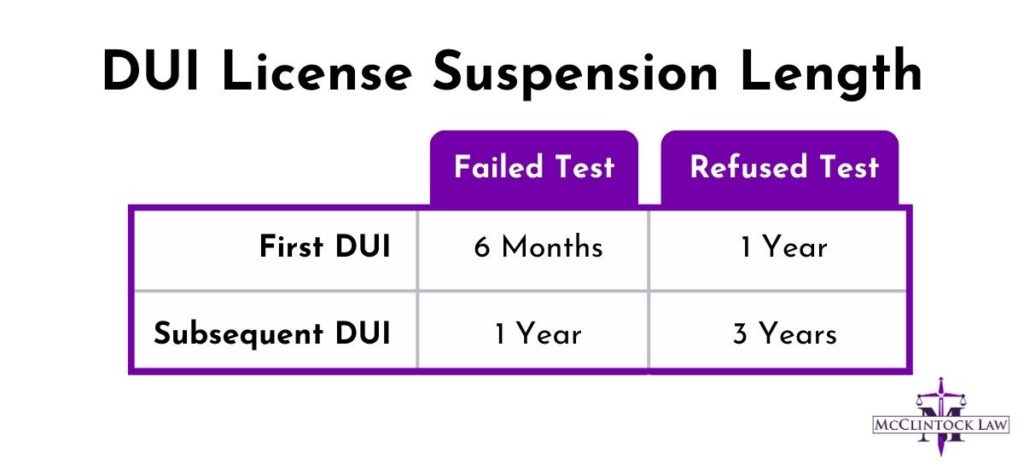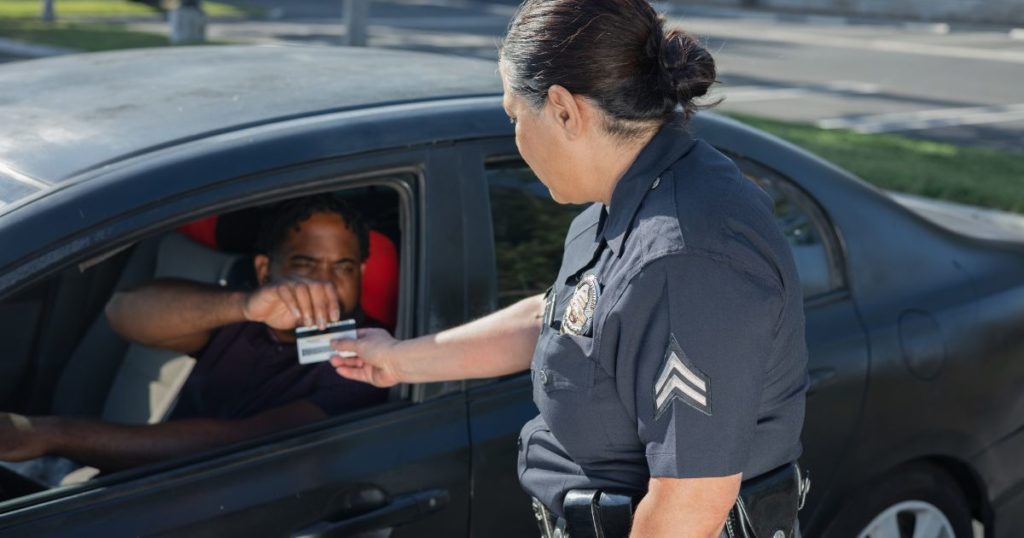Being arrested for a DUI can be life-changing. The biggest question going through your mind may be “Am I going to lose my license?” DUI charges can lead to jail time, loss of driving privileges, and even additional charges like reckless driving. In this article, learn what happens next after a DUI arrest and the steps you can take to keep your license.
KEY TAKEAWAYS
- If you have a valid driver’s license at the time of your Illinois DUI arrest, you’re granted a 46-day window after release to continue driving. Act promptly by filing a petition during this period to increase your chances of defending your driving privileges.
- The length of your license suspension hinges on factors like whether it’s your first DUI offense or not, and whether you refused a breathalyzer or field sobriety test. First-time offenders face a default six-month suspension, potentially extended to a year if testing is refused. Subsequent offenses result in a one-year suspension, potentially heightened to three years for test refusals.
- Instead of waiting for the suspension to end, explore alternatives such as applying for a Restricted Driving Permit or a Monitoring Device Driving Permit. These options are viable if you can demonstrate, with legal assistance, that not being able to drive would be detrimental to your well-being, impacting your ability to attend school or work, and in the case of an MDDP, it involves monitoring your blood alcohol content while driving, possibly incurring installation and maintenance costs.
Will You Be Able to Drive Home After an Arrest?
Let’s start with the good news. In Illinois, as long as you have a valid driver’s license at the time of arrest, you may resume driving after you are released from custody. While your license will be confiscated, you will have 46 days after the arrest before it is fully suspended. Within this window, you are able to file a petition to stop the suspension, and we recommend that this becomes your priority as soon as you are free to go. The earlier you can file a petition, the better the chances that your criminal defense lawyer can put together a case against the suspension, so do this immediately.
Driving Leading Up to Your Suspension
In place of your driver’s license, you will be issued a “Notice of Statutory Summary Suspension.” This document is a notification of your approaching suspension and must be with you at all times while driving leading up to that date. It is critical that you avoid any further violations during this period to prevent compounding your problems. If you expect issues, it is advised that you do not get behind the wheel until matters have been resolved.
The Duration of Your Suspension
If you do not petition to stop your suspension, or said petition is unsuccessful, after 46 days you will lose your license. The extent of this time is dependent on two factors; whether it is your first DUI or you’ve had more than one, and whether you refused a breathalyzer or field sobriety test.

A first offense will result in a 6-month suspension, which is increased to a year if testing is refused. A second or any following offenses will yield a one-year suspension by default, escalated to 3 years if field sobriety or BAC test is declined.
Alternatives When Your License Gets Suspended
You don’t have to wait for your license suspension to come to an end, you can try to obtain a restricted license or a temporary permit, provided you haven’t shown a pattern of DUI issues in the recent past. You may request a Restricted Driving Permit. Suppose you and your legal team can prove that the inability to drive would be detrimental to you or your family’s well-being, such as being unable to attend school or not being able to get to work and provide income. In that case, you may be allowed to drive only to certain places, at the Secretary of State’s discretion. Alternatively, you could ask for a Monitoring Device Driving Permit. An MDDP would allow you to drive with a Breath Alcohol Ignition Interlock Device connected to your vehicle to periodically monitor your blood alcohol content while driving, however, this can incur significant installation and maintenance costs.
In most cases, you will be able to drive again immediately following a DUI, but it is important that you take the next steps to fight your statutory summary suspension. If your license is suspended, there are potential options to keep driving. Regardless, you can ask for reinstatement at the end of your suspension term. Keep in mind that your license suspension is a different case from your DUI, so make sure to speak with your attorney to ensure both are being handled properly. It helps to have someone who can help fight for you. If you need an experienced lawyer with DUI expertise in Illinois, call McClintock Law at (309) 715-7181 today.





